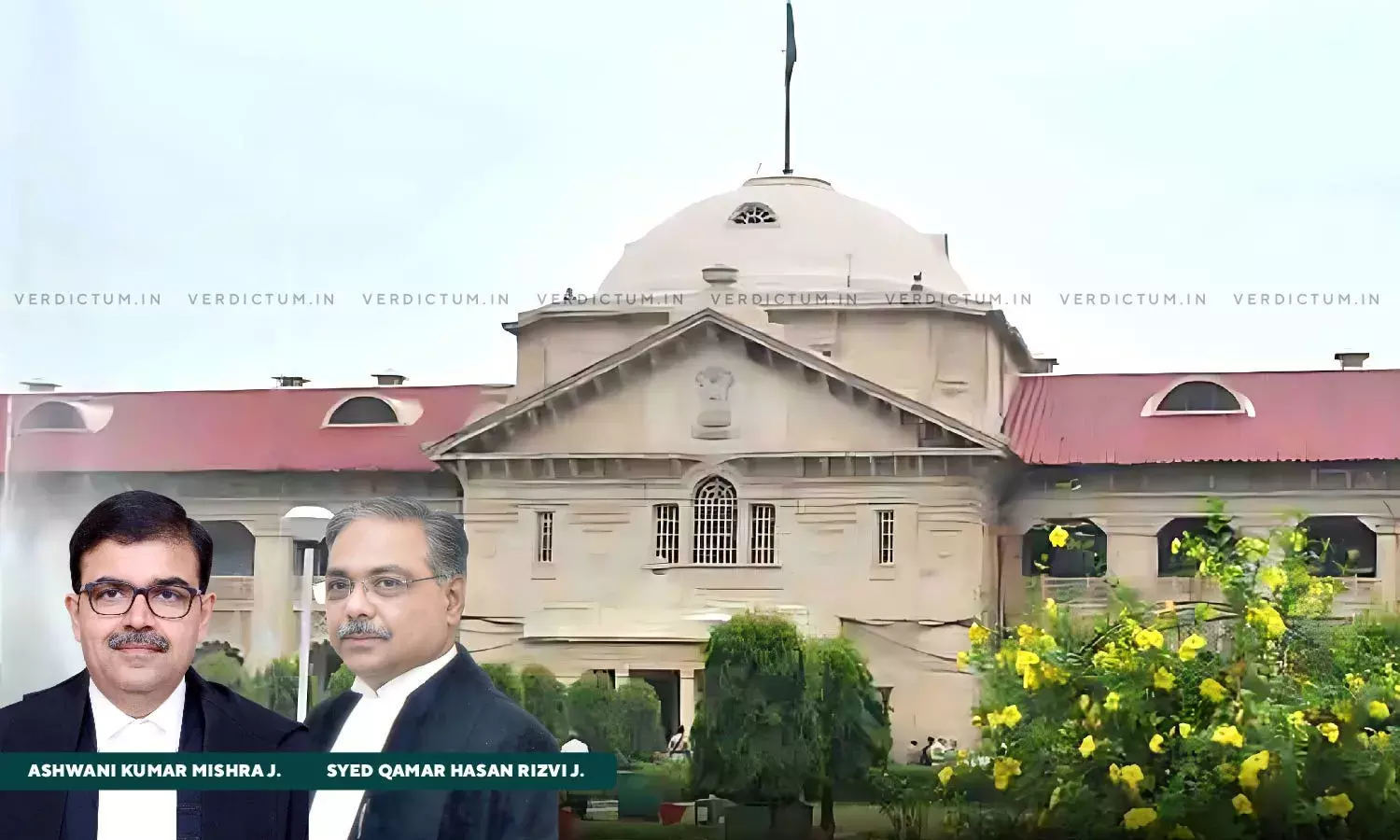Marriage Cannot Be Dissolved Through Compromise In Proceedings U/s. 125 Cr.PC, Consent Of Parties Cannot Confer Jurisdiction: Allahabad HC

The Allahabad High Court ruled that the jurisdiction of the Court under Section 125 Cr. P.C is limited to the aspects of maintenance and the scope of this Section cannot be expanded by the Court to pass a decree of divorce by settlement between parties. The Court also reiterated that consent of parties cannot confer jurisdiction if it is otherwise not vested by law.
The bench of Justice Ashwani Kumar Mishra and Justice Syed Qamar Hasan Rizvi while explaining the scope of Section 125 Cr.P.C. observed, “So far as the proceedings under Section 125 Cr.P.C. are concerned, such proceedings are in respect of payment of maintenance to the deserted wife. The scope of the proceeding under Section 125 Cr.P.C. is limited i.e. with regard to determination of the amount of maintenance. In such proceeding the marriage between the parties cannot be dissolved by the court inasmuch as the jurisdiction of the court would be limited to determination of the aspect of maintenance. Even with the consent of the parties, the jurisdiction of the concerned court under Section 125 Cr.P.C. cannot be expanded so as to concede the power with such court to pass a decree of divorce. Law is well settled that consent of the parties cannot confer jurisdiction if it is otherwise not vested by law.”
This is a case for family pension, where the appellant, the second wife of the deceased husband, approached the Court with a pension claim, on the ground that she had contracted marriage with him. Admittedly, the deceased husband was earlier married to one Usha Devi, but the marriage did not succeed, and a proceeding under Section 125 Cr.P.C. was initiated by Usha Devi in which a compromise was arrived at, as per which, the parties separated. Therefore, it was urged that no rights survived in her as against the deceased.
The appellant approached the single bench which dismissed its Writ Petition. Hence, she approached the division bench in this appeal.
Senior counsel R.K Ojha, who is appearing for the appellant contended that the previous marriage was dissolved by the compromise entered into between parties under Section 125 Cr. PC. It was further contended that the claim of the family pension by the first wife is unsustainable as she solemnised a subsequent marriage.
Counsel for the respondent, Advocate Siddharth Khare contended that the plea of a second marriage by the private respondent Usha Devi was not pleaded in writ and except to make vague allegations in that regard in this appeal no other material was placed.
The Court considered whether the admitted marriage between the deceased husband and first wife could be dissolved by way of a compromise in proceedings under Section 125 Cr.P.C. and concluded that the power of the Court under Section 125 Cr.P.C. was limited and could not be expanded to pass a decree of divorce. Hence, as per the Court, such a compromise cannot dissolve the marriage.
The Court further noted that the parties are Hindu by religion and that marriage would be governed by the Hindu Marriage Act, 1955. While looking into the question as to how and in what manner the marriage between the parties could be dissolved the Court observed, “The marriage between the parties since are governed by the provisions of the Hindu Marriage Act, 1955, the only manner in which such marriage can be dissolved is by passing of an appropriate decree by the competent court by the provisions of the Act of 1955. It is admitted that no such decree by a competent court was ever passed.”
While going through the facts of Deoki Panjhiyara v. Shashi Bhushan Narayan Azad & another, 2012 0 Supreme (SC) 899 the Court reiterated, “…once the previous marriage was void a declaration of nullity or annulment of marriage between the parties by a competent court was not required.”
The Court noted that the marriage between deceased husband Bhojraj and Usha Devi was the first marriage and there was no allegation of incompetence of either of the persons to contract marriage. Hence, as per the Court, it cannot interfere with the right of the first wife to claim pension after it concluded that the marriage cannot be dissolved under Section 125.
Accordingly, the Court found the appeal to be without merit and dismissed it.
Cause Title: Rajni Rani v. State of UP (Neutral Citation: 2024:AHC:43595-DB)
Appearance:
Appellant: Senior Counsel Radha Kant Ojha, Adv. Rakesh Kumar Rathore, Adv. Shyam Narayan Verma
Respondent: Adv. Siddhartha Khare
Next Story

